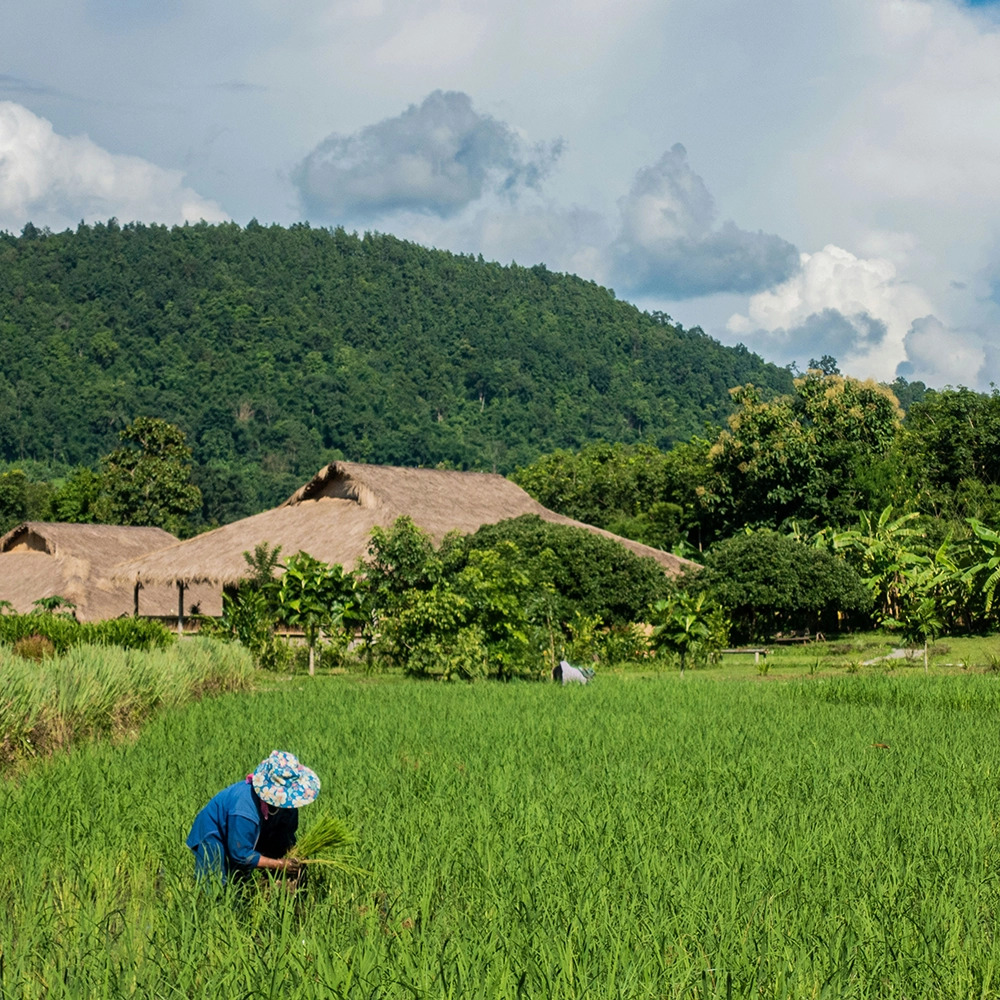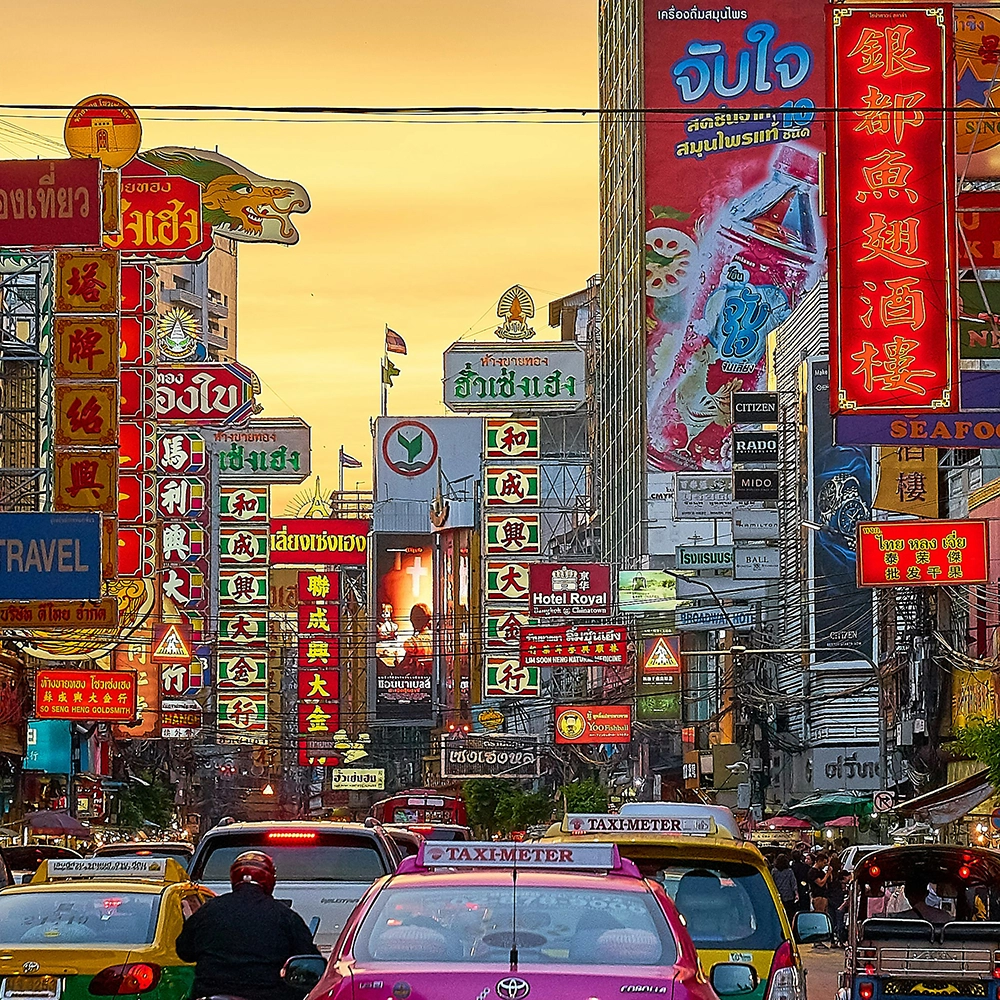From beautiful beaches to delicious food to incredible wildlife, it’s no surprise that Thailand is one of the world’s most visited destinations. Whether you prefer the bustling city or the tranquility of nature, there’s something for everyone in Thailand.
In this article, we’ll examine travel insurance options, paperwork requirements, and destination-specific travel tips to help you make the most of your trip.
Do I Need Travel Insurance for Thailand?
Travel insurance is not required to visit Thailand, however, it is a smart idea to have. Travel insurance can protect you in case of medical emergency, baggage loss, or trip cancellation.
Many medical providers in Thailand only accept cash payments, but having medical insurance can ensure you’re reimbursed for your care.
Should You Buy Travel Insurance for Thailand?
Because your domestic health insurance often does not cover you in another country, travel insurance is always recommended for Thailand and other international destinations. Without travel insurance, you could be left with expensive medical bills if you get sick or hurt during your trip. Travel insurance can also protect the money you spent for your trip when an unexpected event puts your money at risk.
Thailand Travel Insurance Coverage Options
Wherever you travel — abroad or in your own country — Seven Corners offers a variety of travel insurance plans to meet most needs. Benefits can vary depending on which plan and customizable options you choose, the add-ons you select, and your state or country of residency. Before you strike out on your next adventure, explore some of the travel insurance benefits found in many Seven Corners plans and protect your trip to Thailand.
Trip Cancellation
Seven Corners could reimburse you for your prepaid, nonrefundable trip expenses if you have to cancel your trip. The cancellation must be for a covered reason, which can include triggers such as an illness that prevents you from traveling or inclement weather, like a typhoon, that makes it impossible to get to your destination.
If you want the flexibility to cancel your trip for any reason, not just those listed in your plan document, consider adding Cancel for Any Reason (CFAR) coverage. With this optional benefit, you can be reimbursed for some of your insured trip expenses, even if the cancellation wasn’t for a covered reason.
Trip Interruption
An interruption often means you ended your trip and returned home early, but it can also include needing to start your trip late. Trip interruption coverage can reimburse you for the unused portions of your insured trip expenses. It also covers the expense of additional transportation expenses resulting from your trip interruption.
Like CFAR above, IFAR allows you to interrupt your trip for any reason — returning home early because your destination feels unsafe, ending your trip ahead of schedule if you change your mind about travel — not just the covered reasons listed in your plan document. To get this extra flexibility, consider adding optional Interruption for Any Reason (IFAR) coverage.
Trip Delay
Delays can happen any time and are often completely out of our control. If your trip delay was caused by a covered reason, such as a flight delay lasting the required amount of time, this benefit could help reimburse you for expenses, such as meals and accommodations, that often arise with a delay. It also covers you throughout the length of your trip, whether you get delayed on your way to Thailand, when returning home, or somewhere in between.
Lost or Delayed Baggage
If your baggage is delayed by your airline or other common carrier, you’ll likely need to replace necessary personal items — things like clothing and toiletries — before continuing your trip in Thailand. Seven Corners can reimburse you for the purchase of those necessary belongings.
Additionally, your travel insurance could pay to replace or repair items if your baggage is lost, delayed, damaged, or stolen during your trip.
There are some requirements and exclusions for both the lost and delayed baggage benefits. For example, some items such as laptops may not be covered, and your luggage must be delayed for the length of time stated in the plan before you are eligible for reimbursement.
Travel Medical
Thailand is generally a safe place to travel, but injuries and illness can still happen. Most domestic health insurance doesn’t cover you overseas, and neither does the insurance you find with most credit cards or airlines. Travel medical insurance, however, can pay for medical treatment if you get sick or hurt during your trip. That’s why Seven Corners’ travel medical coverage is so important for international travelers.
Seven Corners Trip Protection plans provide coverage for Emergency Accident and Sickness as well as Emergency Dental expenses. We also provide a variety of travel medical plans with customizable levels of medical coverage for international residents. Many of Seven Corners’ plans also have coverage for pre-existing conditions.
Emergency Medical Evacuation and Repatriation
Sometimes your destination is unable to provide adequate care for an injury or illness and it’s medically necessary to transport you to another medical facility. In this case, Seven Corners will arrange your emergency medical evacuation and your return home so you can continue recovering.
Accidental Death and Dismemberment
This Seven Corners benefit provides coverage for loss of life or limb resulting from an injury caused by an accident during your trip to Thailand.
Adventure Activities
Some Seven Corners plans have the option to add an Adventure Activities benefit. This is often important coverage to choose when traveling to Thailand. Riding on motorcycles and scooters, while a common type of transportation in this region, may be considered an adventure activity based on your plan. For medical coverage while participating in these activities, you must have this benefit.
What Is The Best Travel Insurance for Thailand?
Seven Corners Trip Protection is our most popular plan for U.S. residents. This plan covers your trip expenses, belongings, and emergency medical expenses while traveling to Thailand and other parts of Southeast Asia. We also offer an annual trip protection plan for multiple trips, perfect if you travel frequently each year.
Seven Corners Travel Medical Insurance offers coverage for medical expenses. If you get sick or hurt during your trip, you don’t want to have to worry about how you’ll pay for treatment. We’ll help you get the care you need with as little stress as possible.
Finding the best travel insurance for your Thai adventure is quick and simple. Use our interactive guide online or contact our licensed agents. We’ll show you the best options for you and your trip based on your needs and budget. You might be surprised how affordable travel insurance for Thailand is.
How Much Does Travel Insurance to Thailand Cost?
The cost of travel insurance varies based on several factors, including the plan you choose. Trip protection plans are priced based on your trip expenses and your age and are generally 4-10% of your total insurable trip cost. Find out how to calculate your trip cost so you can be sure you have the right amount of coverage.
The cost of a travel medical plan is based on:
- The plan you choose
- Your age
- The length of your trip
- Medical maximum, deductible, and other add-ons you select when customizing your plan
Get a commitment-free quick quote when you answer a few simple questions about your trip to Thailand and see what kind of coverage could be best for you.
Travel Requirements for Thailand
Before packing up your suitcase and heading to the lively city of Bangkok or the serene islands of Koh Phi Phi, it’s important to consider the travel documentation you’ll need. Let’s take a closer look at visa requirements for Thailand.
Visa Requirements for Thailand
United States citizens visiting Thailand for less than 30 days do not need a visa for entry. There are a number of countries that have Visa exemptions when visiting Thailand. View the full list here.
If you’re staying longer than 30 days, you must have a visa. All visa applications must go through the e-Visa website.
Please note: It is recommended to plan and apply for a visa at least one month prior to the departure date to allow for processing time.
Documents and Forms
You will need a valid passport that does not expire within six months after entry to enter Thailand.
Public Health Requirements
As of April 2024, there are no COVID-19 restrictions in place when visiting Thailand. However, the CDC does recommend wearing a mask in crowded spaces with poor ventilation such as airports and airplanes.
There is a Yellow Fever vaccination requirement for individuals visiting from the countries on this list.
Travel Information & Safety Tips for Thailand
Every country you visit will have unique considerations when it comes to transportation, weather, and safety. Let’s dive into what to expect for your upcoming Thailand vacation.
Is Thailand safe to visit?
Traveling in Thailand is generally safe, but you’ll want to take precautions and stay aware of your surroundings. Be wary of pickpocketers and scams involving high taxi fares or bar tabs.
If you’re a U.S. citizen, it’s a good idea to enroll in the Smart Traveler Enrollment Program (STEP). This is a free program that will provide you with up-to-date information about safety precautions in your destination city. It will also help the U.S. Embassy and your friends and family contact you in case of an emergency.
Travel tip: You can contact Thailand Emergency Services by dialing 191.
What languages are spoken in Thailand?
Thai is the primary language spoken in Thailand. However, English is considered an unofficial second language and is spoken across the country, especially in popular tourist areas.
Understanding Thai culture
It’s important to understand how people interact in Thailand, including cultural differences and proper etiquette. Here are a few do’s and don’ts for your visit.
Do:
- Remove your shoes when entering a home or temple.
- Smile at people, and return any smiles you’re given.
- Use your right hand to pass objects to people instead of your left.
Don’t:
- Touch another person’s head or hair.
- Point at people using your finger.
- Toss/throw objects or money to people.
What currency is used in Thailand?
The Thai Baht is the official currency of Thailand. As of April 18, 2024, one Thai Baht equals 0.027 United States dollars.
To get the most accurate, up-to-date conversion rates, check out this calculator before your trip.
What is the weather like in Thailand?
The average temperature in Thailand ranges from 65°-100°F.
In North and Central Thailand, the dry season runs from November to May. During this time, the region sees very little rain. Temperatures can be cool in winter months, especially in higher altitude areas. The rainy season peaks in August and September.
On the West Coast of Thailand, November through March is cooler with less humidity. The monsoon season runs from May to October.
On the East Coast of Thailand, December through February brings cooler weather and little to no rain. March and April are typically the hottest months, with the monsoon season coming later in August or September.
Food and Water Safety in Thailand
The CDC recommends avoiding raw or undercooked food in Thailand. They recommend eating only hot food served on disposable dishes and drinking only from pre-sealed bottles.
Choose bottled water to stay hydrated when you’re out exploring. It’s also a good idea to use bottled water to brush your teeth.
Transportation
Buses and minivans are the most affordable way to get around Thailand.
Flying on a domestic airline like AirAsia or Bangkok Airways will get you to where you’re going the fastest. Trains operated by the State Railway of Thailand are another great option if you’re not in a hurry.
Do I need a power adapter for my electronics?
You shouldn’t need a power adapter when visiting Thailand from the United States. Thailand uses power sockets A, B, C, F, and O, which will work as the United States uses A and B plugs.
U.S. Embassy and Consulate Information for Thailand
- 120/22 Wireless Road, Bangkok, Thailand 10330
- Phone: +66-2-205-4000
U.S. Consulate General Chiang Mai
- 387 Witchayanond Road, Chiang Mai 50300, Thailand
- Phone: +66-53-107-700
Contact Seven Corners about Travel Insurance for Thailand
From unique beaches to exhilarating nightlife to famous Thai massages, you have a lot to look forward to when you travel to Thailand. Make sure you’re protecting all those exciting plans with travel insurance.
Tell us about yourself and your trip, and we’ll recommend the best travel insurance for Thailand. Our quick quote tool online and licensed Seven Corners agents can help you customize your coverage.



